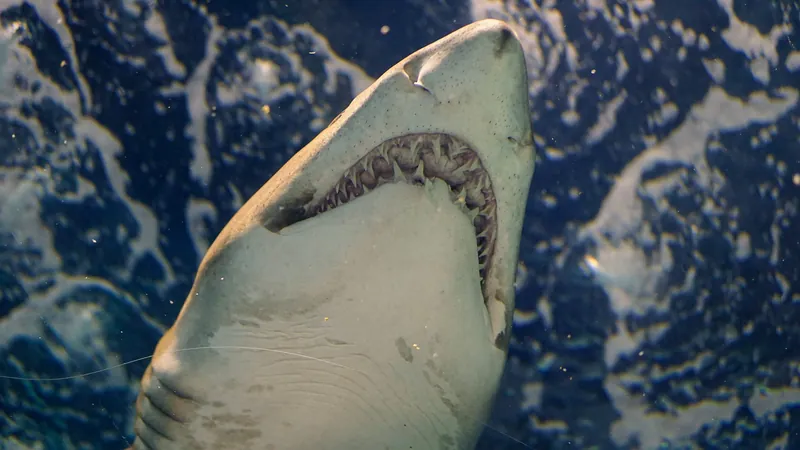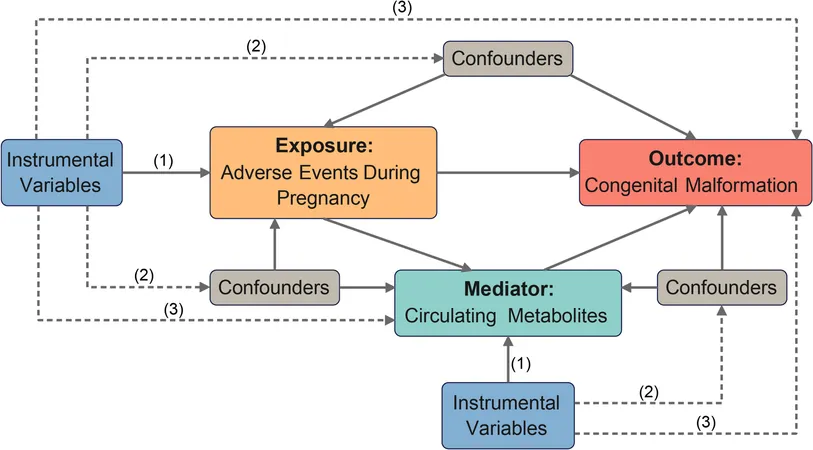
Sharks in Danger? How Ocean Acidification Could Make Them Toothless
2025-08-27
Author: Yu
The Toothless Threat: Ocean Acidification's Impact on Sharks
In a startling revelation, rising ocean acidification could transform apex predators like sharks into 'all shark, no bite' creatures. A groundbreaking study from Heinrich Heine University in Dusseldorf reveals that increasing ocean acidity may leave these formidable hunters with brittle, weakened teeth.
Sharks are renowned for their ability to regenerate teeth, constantly replacing them as they wear down. However, the pressures of climate change and acidifying oceans could threaten this natural defense, making even their famously strong teeth vulnerable.
A Closer Look at Shark Teeth
The research examined shark teeth under varying degrees of acidification. Despite the seemingly robust, highly mineralized structure of shark teeth, they are susceptible to the corrosive effects of a more acidic environment. According to Maximilian Baum, the study's lead author, "They are highly developed weapons built for cutting flesh, not resisting ocean acid." This finding underscores how even the most evolutionary advanced biological weapons can be compromised.
Understanding Ocean Acidification
Ocean acidification occurs when carbon dioxide emissions lower the ocean's pH level. Presently, the average pH of the oceans is 8.1, but predictions indicate it could drop to a alarming 7.3 by 2300—making it ten times more acidic.
The consequences of this shift are severe: coral reefs, vital marine habitats, and shellfish populations are already feeling the strains of acidification. A recent collaborative study indicated that we've crossed a critical threshold in these changes, impacting marine life far and wide, including a staggering 43% habitat loss for certain coral reefs.
Shark Teeth Under the Microscope
For their study, researchers tested the teeth of blacktip reef sharks by exposing them to pH levels reflective of today's oceans and those projected for the future. After being incubated for eight weeks, teeth in more acidic conditions showed significant damage, including cracks and increased corrosion.
Professor Sebastian Fraune commented on findings that revealed alarming surface damage, stating, "We observed visible cracks and holes, increased root corrosion, and structural degradation." While teeth may appear to have a better cutting edge in acidic conditions, this also means they are more prone to breakage.
The Bigger Picture and Future Implications
The study does have its limitations, particularly regarding living sharks. It's possible that in living organisms, teeth could remineralize faster, though this process may come at a higher energy cost in acidic waters.
Ultimately, Baum emphasizes the broader implications, suggesting this research is a reminder of how climate change can ripple through ecosystems and impact critical species like sharks.
Final Thoughts
The study, titled 'Simulated Ocean Acidification Affects Shark Tooth Morphology,' highlights a grim reality for these iconic predators. As our oceans change, so too does the fate of their sharpest defenses.


 Brasil (PT)
Brasil (PT)
 Canada (EN)
Canada (EN)
 Chile (ES)
Chile (ES)
 Česko (CS)
Česko (CS)
 대한민국 (KO)
대한민국 (KO)
 España (ES)
España (ES)
 France (FR)
France (FR)
 Hong Kong (EN)
Hong Kong (EN)
 Italia (IT)
Italia (IT)
 日本 (JA)
日本 (JA)
 Magyarország (HU)
Magyarország (HU)
 Norge (NO)
Norge (NO)
 Polska (PL)
Polska (PL)
 Schweiz (DE)
Schweiz (DE)
 Singapore (EN)
Singapore (EN)
 Sverige (SV)
Sverige (SV)
 Suomi (FI)
Suomi (FI)
 Türkiye (TR)
Türkiye (TR)
 الإمارات العربية المتحدة (AR)
الإمارات العربية المتحدة (AR)